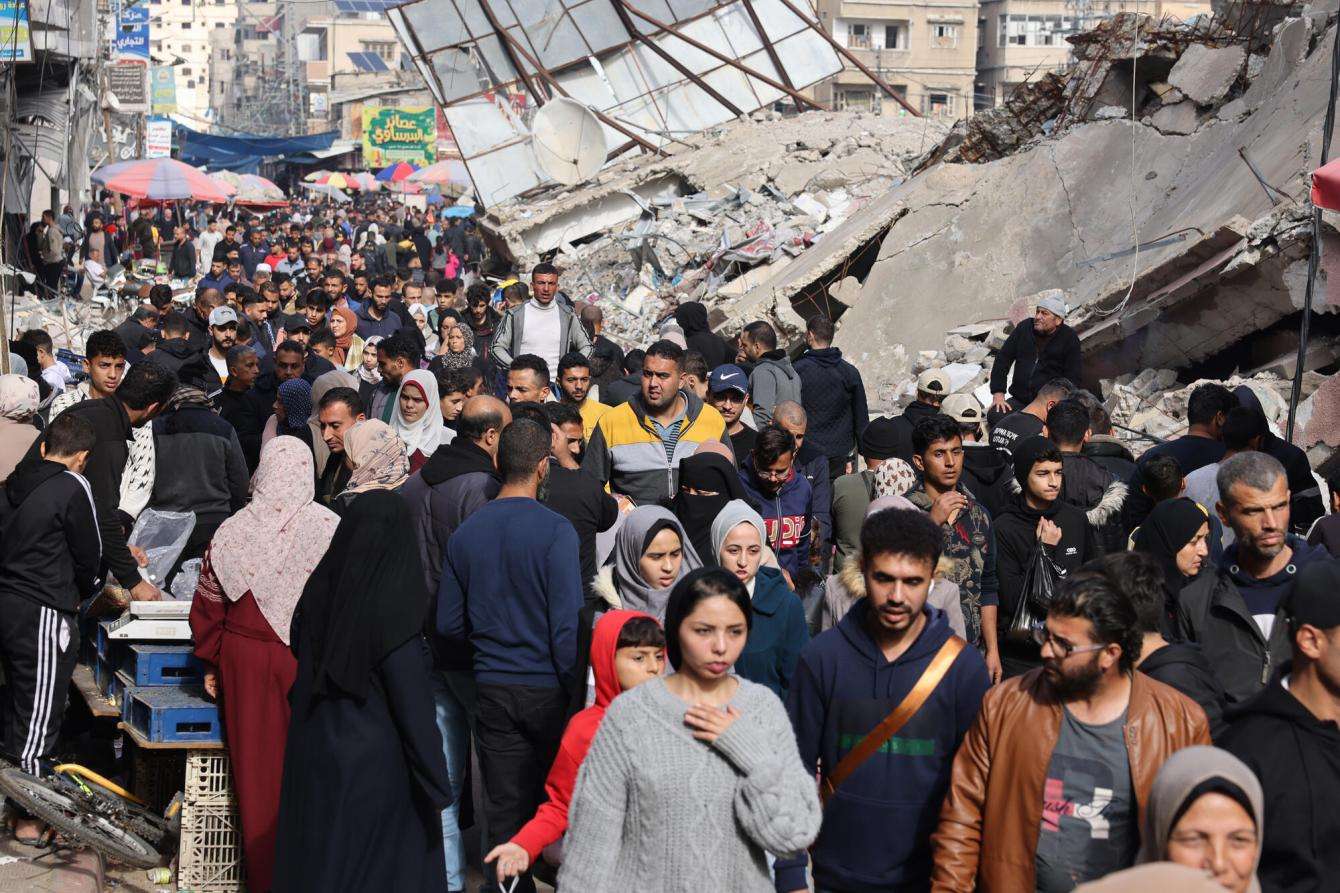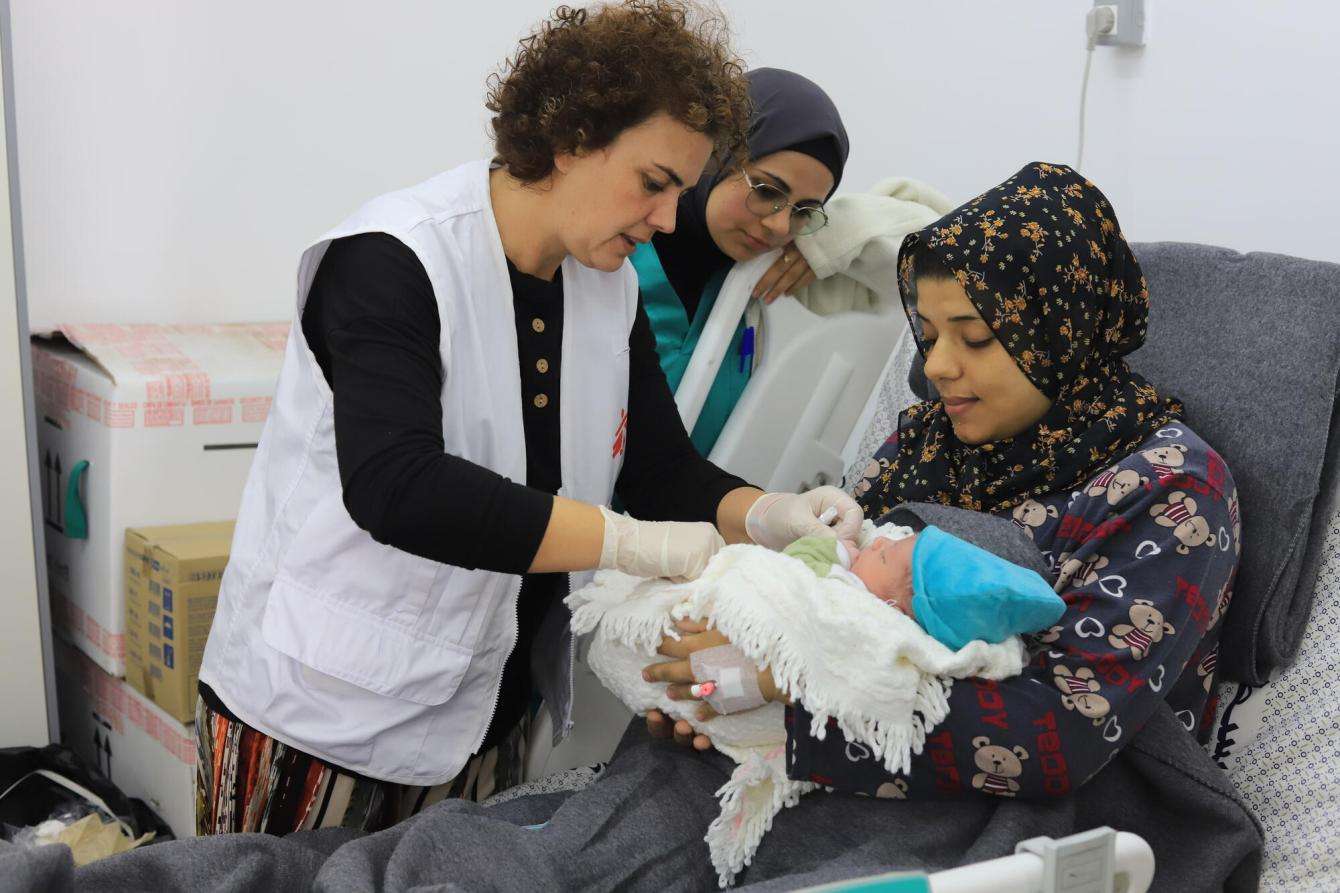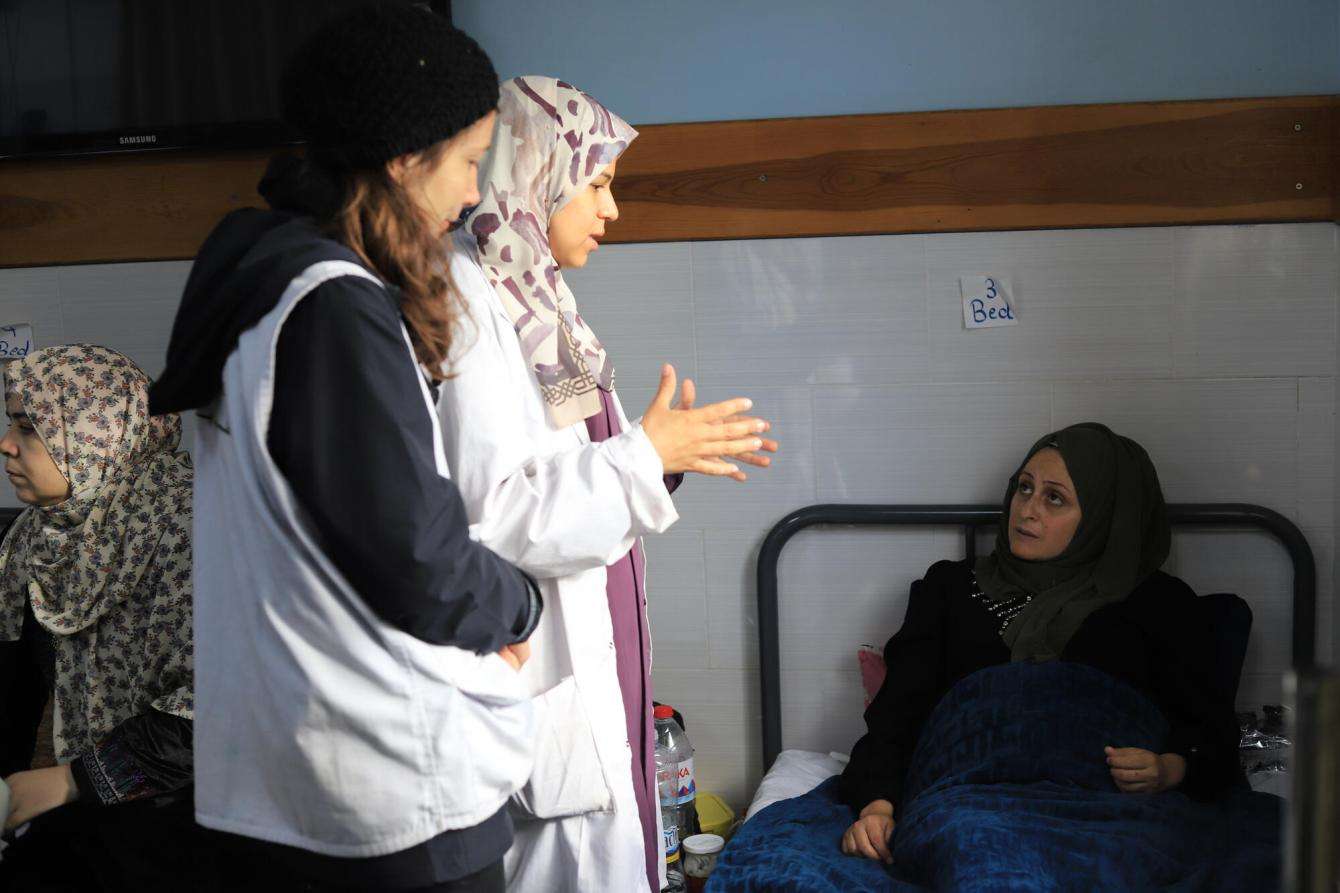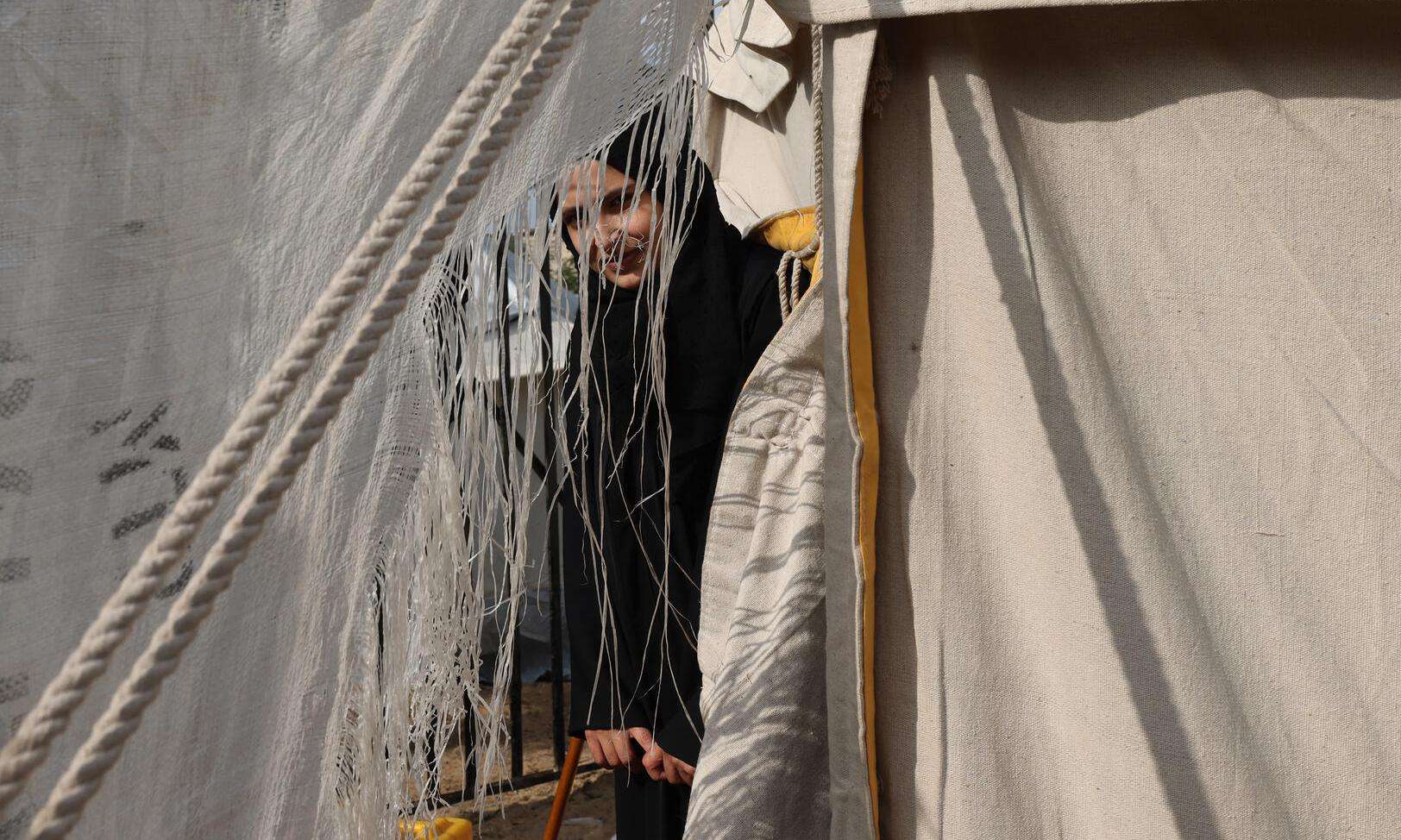When Maha* went into labor, she went to the hospital only to be turned away. All the delivery rooms were full. Discouraged, she returned to her makeshift tent in Rafah, southern Gaza, where she gave birth in a public bathroom in the bitter cold amid a brutal war.
An estimated 52,000 women are currently pregnant in Gaza, according to the World Health Organization, and UNICEF reports that about 20,000 babies have been born since the start of the war—a war marked by a dire lack of humanitarian aid and widespread attacks on health care facilities. The war has completely disrupted access to maternal health care in Gaza, exposing both mothers and their children to serious and even life-threatening health risks. Doctors Without Borders/Médecins Sans Frontières (MSF) is deeply alarmed by the deteriorating lack of obstetric care that Palestinians face in Gaza.

Before the war, Rafah had a population of 300,000—now, that number has soared to 1.5 million as Palestinians have fled bombings and evacuation orders in northern and central Gaza. The MSF-supported Emirati Hospital stands as the main remaining facility attending to the maternal health of displaced pregnant women in the area. Grappling with an overwhelming surge in needs and lack of capacity, the hospital can now only respond to the most urgent and life-threatening deliveries.
“With so many people displaced, the situation in Rafah is terrifying,” said MSF emergency coordinator in Gaza Pascale Coissard. “All places are overcrowded, with people living in tents, schools, and hospitals. The Emirati Hospital is now dealing with three times the number of deliveries it handled before the war.”

Giving birth in tents and public buildings
Maha’s story is not unique: Displaced women living in deplorable conditions are giving birth in plastic tents and public buildings due to the lack of fuel and capacity in health facilities throughout Gaza. Those who manage to deliver in a hospital often return to their makeshift shelters mere hours after undergoing a Cesarean section. Many have not received care since the start of the war.
“Without enough supplies and too many patients, the health care system is overstretched, and mothers are forced to be discharged just hours after giving birth,” explains MSF midwife activity manager Rita Botelho da Costa. “The first 24 hours postpartum are the riskiest for complications, and with people living in dire conditions, it's important to keep the patient in the hospital as long as possible.”
To reduce the risk of morbidity and mortality among mothers and newborns, MSF is supporting postpartum care at the Emirati Hospital by more than doubling its bed capacity, which now has 20 beds, allowing more patients to receive proper monitoring post-delivery.

What it's like to be pregnant in Gaza right now
Read moreConsequences of lack of access to maternal health care
At six months pregnant, 33-year-old Rana Abu Hameida was admitted to the maternity ward at the Emirati Hospital because she was suffering from complications. Rana hadn’t had a prenatal checkup since the start of the war.
“After I was displaced, it became difficult to get transportation and to find health care services,” she said. Abu Hameida was displaced from Beit Lahya, in North Gaza, and like Maha, is now sleeping in a tent. “It's challenging to find a place for treatment or organizing my life so I can resume monthly checkups ... Life is hard, especially when it comes to finding food or water and sleeping without proper bedding.”
When pregnant women don't have proper access to health care, enough food, or adequate shelter, they and their children are more likely to experience health issues, including infections. The children of malnourished pregnant or breastfeeding women are at immediate risk of potential long-term developmental challenges. Over a third of patients seeking prenatal care exhibited anemia, a condition often associated with an iron deficiency, which is a critical concern for pregnant women who often require iron supplementation. Additionally, nearly half of these women had genitourinary infections, such as urinary tract infections.

Responding to the urgent needs of pregnant Palestinians in Gaza
In Rafah, MSF teams are providing postpartum care as well as mental health support in the Emirati Hospital. In Al-Shaboura Clinic, pregnant women are provided with prenatal care, including screening for malnutrition, and given supplementary therapeutic food if needed.
In the first week of January, MSF gynecologists and obstetricians provided prenatal care to over 200 patients at the Al-Shaboura Clinic. In the Emirati Hospital’s post-natal care ward, MSF teams received over 170 patients within the first week of expanding the ward. However, without sufficient humanitarian aid to Gaza and protection for the few health facilities that remain functioning, the provision of care will continue to be a a drop in the ocean.
MSF reiterates our call for an immediate and unconditional ceasefire in Gaza, and for the protection of health facilities to safeguard lives. We also stress the urgency to promptly restore the flow of humanitarian aid into Gaza and re-establish the health care system, which mothers and children depend on for survival.
*Name changed to protect privacy




